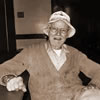
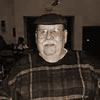
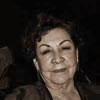
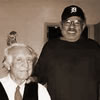
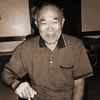
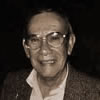
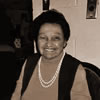
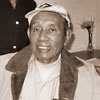
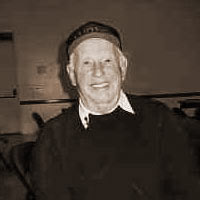 |
Fred Bustillos
I was brought up during the Depression and all that. You lived from day to day, just hoping to hell you had a better day, and things worked out for me, they worked out just right for me. I kept myself busy. Years ago, as a kid, we all went downtown, because all the big utility companies were there, you went to pay your bills. You got dressed, you got on a streetcar. Same thing in religion. When you went in church you dress. Look what happened! (laughs) Now I see these women in shorts! People from southern California are very, very casual. Anywhere they travel, just look at their dress and they know he's from southern California. Los Angeles, was a very, very prejudiced town. Los Angeles at one time was like a big pie, you cut it, eight different pieces. The Jewish people lived here, the Russians live here. And you had the Italians, here, and you had the Hispanics. I can remember as a kid in the twenties, you could go down Broadway, if you was dark complected, you couldn't get in the shows. So Hispanic and dark complected people, the big day for them was Sundays. They used to go the Plaza, and they would do all their shopping on Sunday. Go to all the stores that handled Mexican products, and they would go to the show, and after that, they would go home. But if you was dark complected, they would stay on Main Street. Light complected? Hell, you got in all the big shows on Broadway at the time. You had no problem. There were a lot of different groups, ethnic groups, they couldn't intermarry. You never saw a black individual with a white girl, you never saw it. Now it's changed, everything has changed. Everything changes. This neighborhood, when I moved in to this neighborhood it was predominant caucasian. I think there were only two - and I was one of 'em - Hispanic families. |
| Mark Adler Danny Alvarez Pedro Bena Fred Bustillos Nellie Castillo Ann Fletcher Jesus Gonzalez Eva Guerrera Louis Hernandez Genevieve Hilton Teresa Hinojosa Mimi Hunt Dolores Jimenez Francisco Mena Connie Noriega David Orosco Eddie Ramirez Rose Savala |